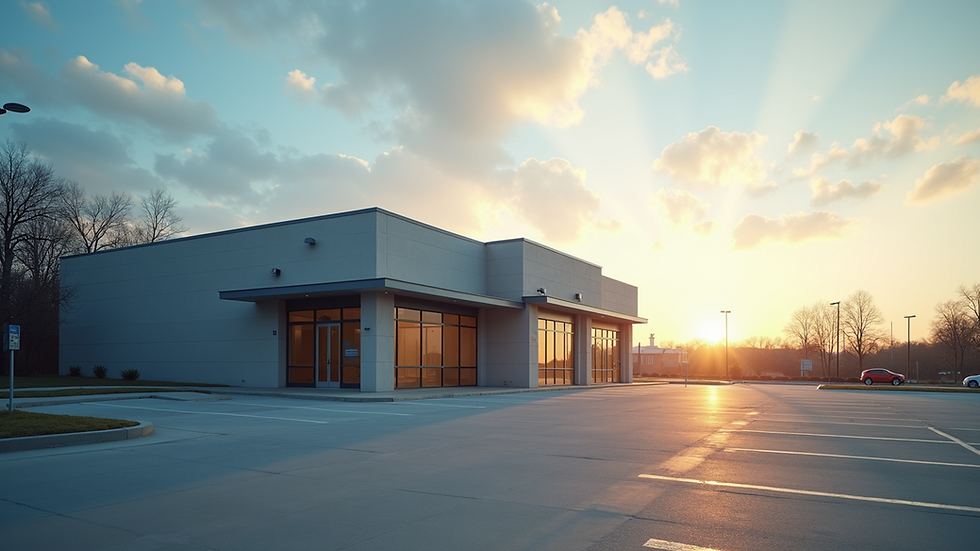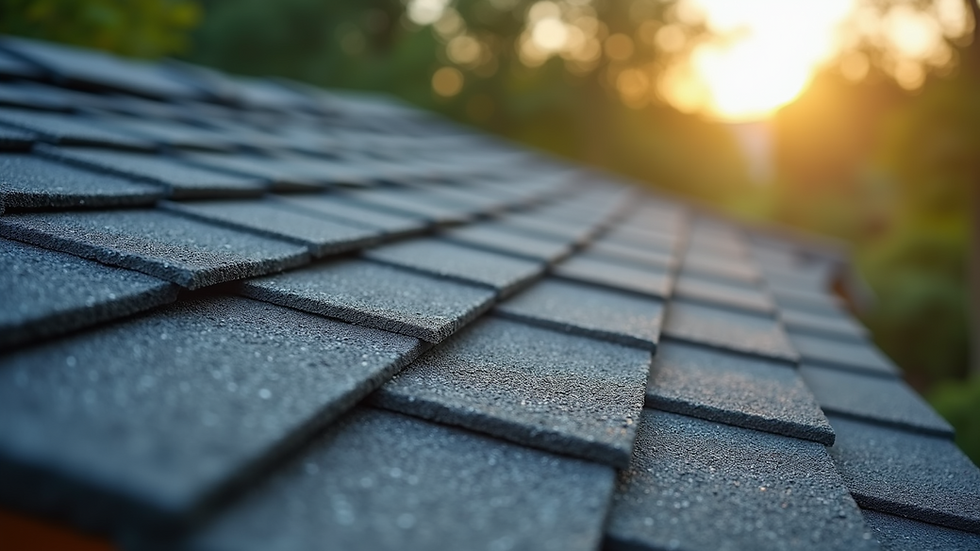Top Commercial Roofing Services for Your Business
- jocreyes151
- Sep 24, 2025
- 5 min read
When it comes to running a business, the roof over your head is more than just a structure. It is a vital part of your property that protects your assets, employees, and customers. A well-maintained roof can save you money, enhance your building's appearance, and ensure safety. In this blog post, we will explore the top commercial roofing services available for your business.
Understanding the different types of roofing services can help you make informed decisions. Whether you need a new roof, repairs, or maintenance, knowing your options is essential.
Types of Commercial Roofing Services
There are several types of commercial roofing services that cater to different needs. Here are the most common ones:
1. Roof Installation
Installing a new roof is a significant investment. It is crucial to choose the right materials and contractors. Common roofing materials include:
TPO (Thermoplastic Olefin): Known for its energy efficiency and durability.
EPDM (Ethylene Propylene Diene Monomer): A popular choice for flat roofs due to its weather resistance.
Metal Roofing: Offers longevity and a modern look.
Each material has its benefits, so consider your building's needs and budget when making a choice.
2. Roof Repair
Over time, roofs can develop leaks, cracks, or other issues. Regular inspections can help identify problems early. Common repair services include:
Leak Repair: Fixing leaks promptly can prevent further damage.
Patching: Addressing small areas of damage to extend the roof's life.
Flashing Repair: Ensuring that the areas around vents and chimneys are sealed properly.
Timely repairs can save you money in the long run and keep your business running smoothly.
3. Roof Maintenance
Routine maintenance is essential for prolonging the life of your roof. Regular inspections can catch issues before they become major problems. Maintenance services often include:
Cleaning: Removing debris and moss to prevent water buildup.
Sealing: Applying protective coatings to enhance durability.
Inspections: Regular check-ups to assess the roof's condition.
Investing in maintenance can help you avoid costly repairs and replacements.
4. Roof Replacement
Sometimes, a roof is beyond repair. In such cases, a complete roof replacement may be necessary. This service involves:
Removing the Old Roof: Safely taking off the existing roofing material.
Installing New Roofing: Choosing the right materials for your new roof.
Ensuring Proper Insulation: Enhancing energy efficiency with proper insulation.
A new roof can improve your building's appearance and energy efficiency.
5. Emergency Roofing Services
Unexpected events, such as storms or accidents, can cause significant damage. Emergency roofing services are available to address urgent issues. These services typically include:
Temporary Repairs: Quick fixes to prevent further damage.
Assessment: Evaluating the extent of the damage.
Full Restoration: Planning for complete repairs or replacement.
Having access to emergency services can provide peace of mind during challenging times.
Choosing the Right Roofing Contractor
Selecting the right contractor is crucial for any roofing project. Here are some tips to help you make the best choice:
1. Check Credentials
Ensure that the contractor is licensed and insured. This protects you from liability in case of accidents.
2. Read Reviews
Look for customer reviews and testimonials. This can give you insight into the contractor's reputation and quality of work.
3. Get Multiple Quotes
Obtain quotes from several contractors. This allows you to compare prices and services.
4. Ask About Warranties
Inquire about warranties on both materials and labor. A good warranty can provide added security for your investment.
5. Evaluate Experience
Choose a contractor with experience in commercial roofing. They will be more familiar with the specific needs of your business.
The Importance of Regular Inspections
Regular roof inspections are essential for maintaining the integrity of your roof. Here are some reasons why inspections matter:
1. Early Problem Detection
Inspections can identify issues before they escalate. Catching problems early can save you money and stress.
2. Extended Roof Life
Routine maintenance and inspections can prolong the life of your roof. This means fewer replacements and repairs over time.
3. Improved Energy Efficiency
A well-maintained roof can enhance your building's energy efficiency. This can lead to lower utility bills and a smaller carbon footprint.
4. Compliance with Regulations
Regular inspections can help ensure that your roof meets local building codes and regulations. This can prevent legal issues down the line.
Cost Considerations for Commercial Roofing Services
Understanding the costs associated with roofing services can help you budget effectively. Here are some factors that influence pricing:
1. Type of Service
Different services come with varying costs. For example, a new roof installation will generally be more expensive than routine maintenance.
2. Roofing Material
The choice of roofing material can significantly impact the overall cost. High-quality materials may have a higher upfront cost but can save you money in the long run.
3. Size of the Roof
Larger roofs will naturally cost more to install or repair. Be sure to consider the size of your building when budgeting.
4. Labor Costs
Labor costs can vary based on the contractor's experience and location. Always get multiple quotes to ensure you are getting a fair price.
5. Additional Features
If your roof has unique features, such as skylights or chimneys, this can affect the cost. Be sure to discuss these with your contractor.
Sustainable Roofing Options
As businesses become more environmentally conscious, sustainable roofing options are gaining popularity. Here are some eco-friendly choices:
1. Green Roofs
Green roofs involve planting vegetation on the roof surface. They provide insulation, reduce stormwater runoff, and improve air quality.
2. Cool Roofs
Cool roofs are designed to reflect more sunlight and absorb less heat. This can lower energy costs and improve comfort inside the building.
3. Recycled Materials
Using recycled materials for roofing can reduce waste and lower your carbon footprint. Many manufacturers offer eco-friendly options.
4. Solar Panels
Installing solar panels on your roof can provide renewable energy for your business. This can lead to significant savings on energy bills.
The Future of Commercial Roofing
The commercial roofing industry is evolving. Here are some trends to watch for in the coming years:
1. Advanced Technology
New technologies, such as drones and 3D modeling, are changing how roofs are inspected and installed. These advancements can improve efficiency and accuracy.
2. Increased Focus on Sustainability
As businesses prioritize sustainability, the demand for eco-friendly roofing options will continue to grow. This trend will likely shape the future of the industry.
3. Smart Roofing Systems
Smart roofing systems that monitor temperature, moisture, and other factors are becoming more common. These systems can help businesses manage their roofs more effectively.
4. Enhanced Safety Measures
Safety is always a priority in roofing. Expect to see more emphasis on safety training and equipment to protect workers on the job.
Final Thoughts
Investing in commercial roofing services is essential for the longevity and safety of your business. By understanding the different types of services available, choosing the right contractor, and prioritizing regular maintenance, you can protect your investment.
Remember, a well-maintained roof not only enhances your building's appearance but also contributes to energy efficiency and safety. Take the time to explore your options and make informed decisions for your business's future.



Comments